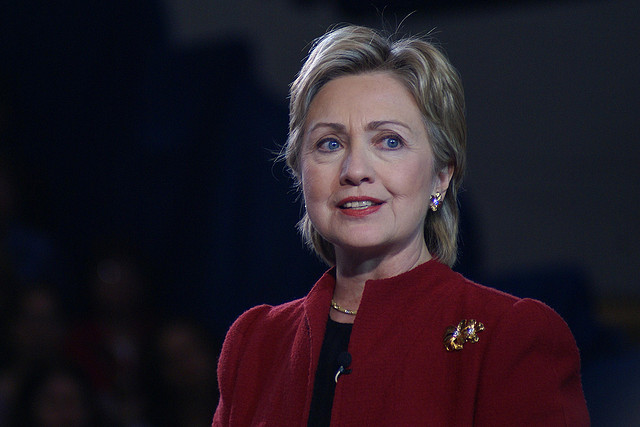
Hillary Clinton was once one of the strongest supporters of the Trans-Pacific Partnership (TPP), but now political ambitions and pressure from special interests have caused her to renege on her previous support. Her new position on trade relies on ambiguous language, bizarre counterfactuals, and – when all else fails – refusing to take questions from the media.
As Secretary of State, Hillary Clinton championed the Pivot (or should I say “Rebalance”?) to Asia. A core part of this strategy was tightening economic ties with Asian nations through trade agreements. The TPP is the manifestation of this goal and her support for it was unambiguous. In a 2011 speech, Clinton said that the “TPP sets the gold standard in trade agreements to open free, transparent, fair trade, the kind of environment that has the rule of law and a level playing field.”
Where does she stand now? Well, her current position is not as clear cut. In a statement given to the New York Times, she sets two conditions for supporting the trade agreement. First, the agreement must “put us in a position to protect American workers, raise wages and create more good jobs at home.” Her second condition is that the deal “must also strengthen our national security”.
When Clinton was promoting the TPP, she argued that it was a good deal BECAUSE of worker protections, job growth, and security – the exact things that she’s skeptical of in the deal. Clinton stated that the agreement would have “strong protections for workers” and lead to “better jobs with higher wages and safer working conditions”. Regarding security, Clinton knows as well as anyone that closer economic ties breed closer political and security relationships.
This strategic ambiguity – if you will – from candidate Clinton is not hard to understand. As Congress started to address trade promotion authority (TPA) – a necessary precondition to the TPP – liberal activists and interest groups ramped up their anti-trade message. The latest example is the AFL-CIO, which implied that they may sit out the 2016 Presidential election if no candidate touts their protectionist mantra on trade. Despite the fact that most Americans – and most Democrats – support free trade, she has begun to shift her position on trade to appease the fringe of her party.
Clinton will not be able to stay on the fence for much longer. Her position on the issue will be a test of her political will to resist the special interests that threaten to commandeer her campaign.

